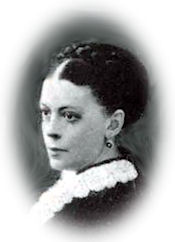 10th.—Fell back to-day about a mile and a half out of reach of enemy’s shells. Patience and endurance of everything, without expression of thought, can scarcely be considered a virtue, even in a military subordinate. The Western Army is all activity and execution. No. 10 taken, Beauregard whipped on his own ground, all our armies accomplishing glorious deeds, except this poor old thing of the Potomac, called an army: Nearly a year has been spent by us in squatting around in sight of the enemy, rushing forward to-day, till within fighting distance, to-morrow falling back, as if afraid that some one might get shot. Here we have been for five days in sight of the enemy we came to capture or destroy, and this morning, because they threw a few shells into our camp, we are falling back! We are within twenty miles of one of our principal military stores and depots, with our men and animals starving. My ambulance horses-have not had a mouthful of any thing to eat for nearly three days, and to-day they are expected to draw the heavy ambulances over the worst roads I ever saw. Yes, here we are, in a “cul de sac,” the rivers on either side of us held by the enemy, the ground in front blockaded by them, and their pickets jeeringly calling across the little creek to know whether we are not most ready to fight. Who is to blame? Many of us begin to question the ability of General McClellan.
10th.—Fell back to-day about a mile and a half out of reach of enemy’s shells. Patience and endurance of everything, without expression of thought, can scarcely be considered a virtue, even in a military subordinate. The Western Army is all activity and execution. No. 10 taken, Beauregard whipped on his own ground, all our armies accomplishing glorious deeds, except this poor old thing of the Potomac, called an army: Nearly a year has been spent by us in squatting around in sight of the enemy, rushing forward to-day, till within fighting distance, to-morrow falling back, as if afraid that some one might get shot. Here we have been for five days in sight of the enemy we came to capture or destroy, and this morning, because they threw a few shells into our camp, we are falling back! We are within twenty miles of one of our principal military stores and depots, with our men and animals starving. My ambulance horses-have not had a mouthful of any thing to eat for nearly three days, and to-day they are expected to draw the heavy ambulances over the worst roads I ever saw. Yes, here we are, in a “cul de sac,” the rivers on either side of us held by the enemy, the ground in front blockaded by them, and their pickets jeeringly calling across the little creek to know whether we are not most ready to fight. Who is to blame? Many of us begin to question the ability of General McClellan.
If we can get forage and rations here, I think we must make some kind of a fight before we get away. How much of a fight, I cannot tell. It is surprising how man is modified by habit. During the late skirmishes, we who are not engaged, sat in our tents, smoking, singing, jesting with as much indifference as we would sit by our fires at home and listen to the falling of the axeman’s blows. True, we sometimes notice the sounds of a report heavier than usual, and “wonder how many that shell did for.” Would such indifference have overtaken us, if we had been kept engaged in the ordinary duties of an army? I verily believe not. It is the offspring of a kind of desperation. We came to effect something. We have been disappointed, and are growing careless of consequences. Nor are the moral habits of the men less changed. Stealing is becoming a pastime with them, and is scarcely looked on as a crime.
General McClellan’s command has dwindled down to three corps d’armee, and I regret to say that the opinion is beginning to be held by many, that he is not competent to the command of even this force.
No mail now for ten days. This is very hard; harder even than to sleep out and go hungry. Even now our families may be suffering, dying, and we have no means of knowing it. Well, in time of war this is necessary, and perhaps it is all for the best. God controls and directs.
 Hilton Head, S.C., August 10, 1862
Hilton Head, S.C., August 10, 1862


